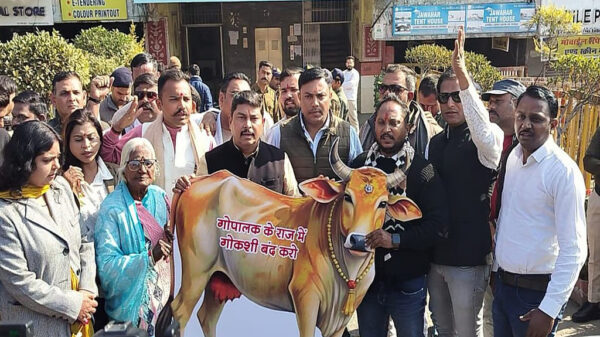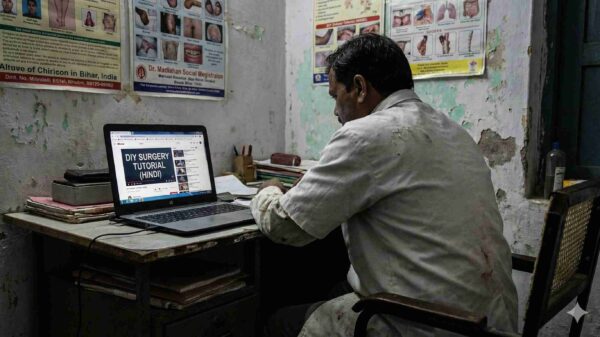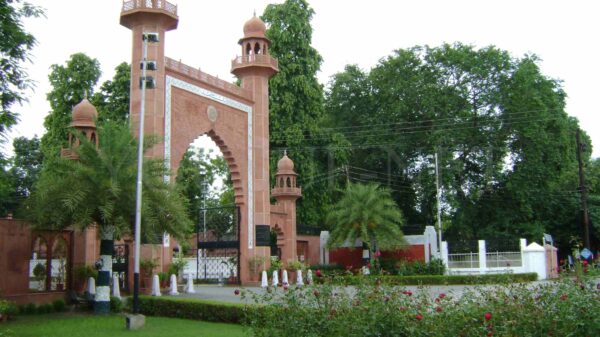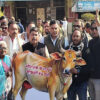A new study has found traces of uranium in breast milk samples from six districts in Bihar, but senior scientists say the levels are too low to cause any public health concern.
The research was carried out by Mahavir Cancer Sansthan in Patna under the guidance of Dr Arun Kumar and Prof Ashok Ghosh, in collaboration with AIIMS New Delhi, where the team was led by Dr Ashok Sharma from the biochemistry department. The study took place between October 2021 and July 2024 and examined breast milk from forty mothers aged between seventeen and thirty five in Bhojpur, Samastipur, Begusarai, Khagaria, Katihar and Nalanda.
Uranium was detected in every sample, with amounts between zero and 5.25 micrograms per litre. There is no defined safe limit for uranium in breast milk. Khagaria showed the highest average contamination, Nalanda recorded the lowest levels and Katihar had the single highest reading. The study said almost seventy percent of infants had exposure levels linked to possible non cancer health risks.
Dr Ashok Sharma from AIIMS said the source of uranium is not yet known. He said, “We do not know where this uranium is coming from. The Geological Survey of India is also trying to find out. Uranium can enter the food chain and cause cancer, neurological problems and affect the growth of children. This is a very serious concern.”
Environmental conditions in Bihar have already led to contamination of biological samples with arsenic, lead and mercury. The heavy use of groundwater for drinking and farming, untreated industrial waste and long term use of chemical fertilisers have all contributed to the problem. The presence of uranium in breast milk now shows that the contamination has reached infants, the most vulnerable group.
Infants are at higher risk because their bodies are still developing, they absorb toxic metals more easily and their low body weight increases the impact. Uranium exposure can damage the kidneys, affect the brain, slow down development and raise the risk of cancer later in life.
Similar problems with uranium in groundwater have been reported in several countries, including Canada, the United States, Finland, Sweden, Switzerland, the United Kingdom, Bangladesh, China, Korea, Mongolia, Pakistan and the Mekong delta. But its presence in breast milk in Bihar adds a new layer of concern.
Even with these findings, researchers stressed that mothers should continue breastfeeding. They said breast milk remains essential for immunity and early growth and should only be stopped on medical advice.
Soon after the study was published, the National Disaster Management Authority said the findings do not pose any danger. Senior nuclear scientist Dr Dinesh K Aswal, a member of the authority and former group director at the Bhabha Atomic Research Centre, told NDTV that the levels found in Bihar are far below global safety limits. He said, “There is no cause for concern. The World Health Organization’s safe limit for drinking water is almost six times higher than what was found in these samples.”
A report in the journal Scientific Reports said the study detected up to five parts per billion of uranium in breast milk. Dr Ashok Sharma told news agency ANI that while the study found uranium in all samples and noted potential non cancer risk for infants, the actual health impact is expected to be minimal because the levels were still below accepted limits. He said women should continue breastfeeding without fear.
Dr Aswal also said, “There is absolutely no reason for alarm. Mothers can and should continue to breastfeed their children without hesitation.” He explained that tiny amounts of uranium are naturally present in soil across the world. Most of the uranium consumed by mothers leaves the body through urine, leaving only a very small amount in breast milk.
The study noted that uranium contamination in groundwater has been a growing concern in India and has been reported in more than one hundred and fifty districts across eighteen states. The researchers said there is a need to monitor uranium exposure in Bihar more closely and carry out regular testing of drinking water.
Experts said breastfeeding remains vital for infant health. Dr Aswal said, “Science must guide public health decisions, not fear. Our findings confirm that breastfeeding continues to be completely safe.”


































































